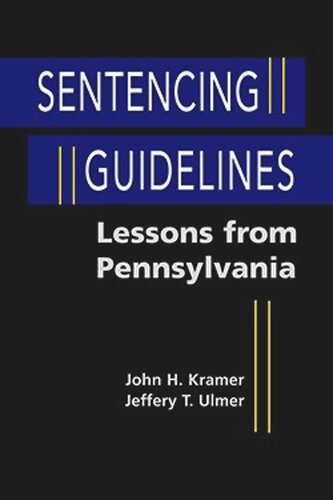

Most ebook files are in PDF format, so you can easily read them using various software such as Foxit Reader or directly on the Google Chrome browser.
Some ebook files are released by publishers in other formats such as .awz, .mobi, .epub, .fb2, etc. You may need to install specific software to read these formats on mobile/PC, such as Calibre.
Please read the tutorial at this link: https://ebookbell.com/faq
We offer FREE conversion to the popular formats you request; however, this may take some time. Therefore, right after payment, please email us, and we will try to provide the service as quickly as possible.
For some exceptional file formats or broken links (if any), please refrain from opening any disputes. Instead, email us first, and we will try to assist within a maximum of 6 hours.
EbookBell Team

4.1
70 reviewsSentencing guidelines, adopted by many states in recent decades, are intended to eliminate the impact of bias based on factors ranging from a criminal’s ethnicity or gender to the county in which he or she was convicted. But have these guidelines achieved their goal of “fair punishment”? And how do the concerns of local courts shape sentencing under guidelines? In this comprehensive examination of the development, reform, and application of sentencing guidelines in one of the first states to employ them, John Kramer and Jeffery Ulmer offer a nuanced analysis of the complexities involved in administering justice.